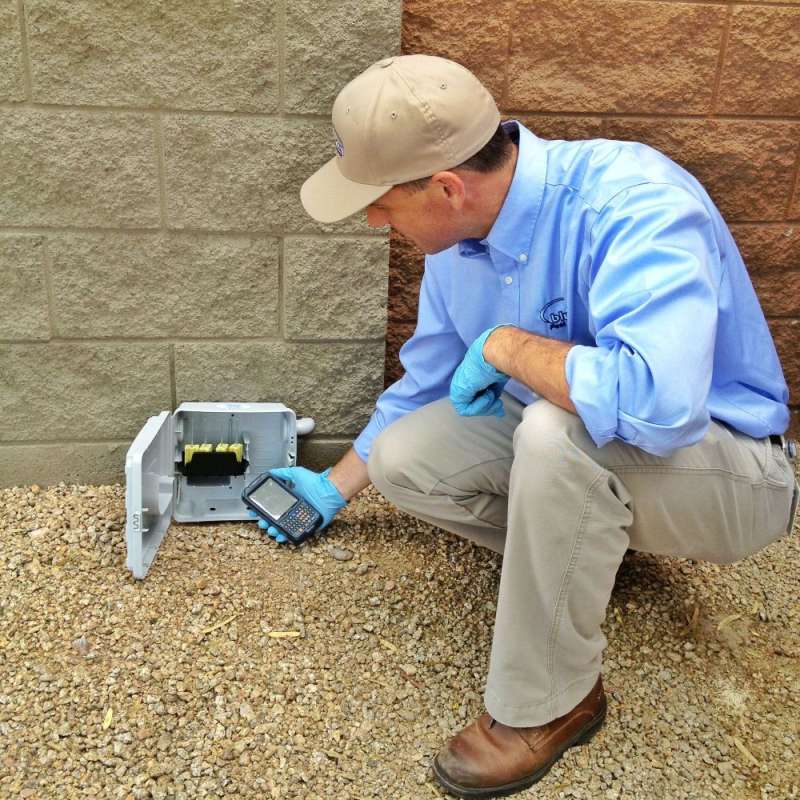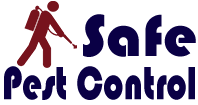
If you are looking for Pest Solutions in Lyndonville Village, Vermont, you have many, many options you can choose from. The number of pest control companies in and around Lyndonville Village are many and varied, and all offer many choices when it comes to termite control for your home or building.
Choosing a Bug Control Business
If you have a problem with undesirable insects in your house, and you've exhausted all the self-help remedies you know, you may be thinking about hiring an industrial pest control company to deal with the problem. Hiring a professional may be precisely the ideal solution for you; but you require to do your research. How do you locate a company? Inspecting the yellow pages of your local telephone directory might be an excellent start; doing a keyword search on the Internet for your location might likewise work, and you have the added benefit of seeing what details the business provides, on itself and on insect control usually. Ask good friends and coworkers for recommendations After you've established a list of pest control services, and before you call these companies, start asking more questions of your coworkers and buddies. Did the business in question fix their insect infestation problems? Any issues in the house after the business performed their services? Once you've narrowed down your list to a couple of potential companies, call them on the phone, and ask some more concerns: does the company provide a complimentary house examination and quote of costs? Does it give you suggestions on what you can do to handle the problem yourself? Is the company willing to address questions readily? potential dangers or side effects do these chemicals have on family grownups and kids, and on animals? Do your family and home family pets require to leave the premises during the insect control treatment? Make certain you ask whether the company offers nontoxic, natural pest control. The business ought to want to at least discuss the choices; if its representative just dismisses the concept of nontoxic bug control without wisely going over the benefits and drawbacks of the natural remedies available, but simply wants to enter your house and spray, beware! With written information (or your own notes) in hand, do your own research study on any chemicals that will be used - their efficiency, their possible adverse effects, their possible toxicity. (The Internet is a great location to begin for this.) If you have relative with severe health issues, particularly asthma or other breathing conditions, ensure you understand what the possible impact of sprayed substances could have on them. If you have any concerns about the company's dependability, and you can't find anyone you understand and whose judgment you trust to vouch for them, contact your local or state Better Business Bureau or Consumer Fraud Division, to find out whether there have been any complaints lodged versus them. Make sure you understand who is going to be showing up at your home and when as soon as you've worked with a company. Ensure they have appropriate I.D., and ask if you can be there to monitor the procedure or if you have to leave, and for how long. And while you've got access to the professional treating your home, ask what you can do to avoid pest control problems in the future, particularly those including destructive carpenter ants and termites. The man (or gal) who really does the work most likely has insights into the topic that the workplace staff does not have. Checking the yellow pages of your regional phone book may be a good start; doing a keyword search on the Internet for your location might likewise work, and you have the added advantage of seeing what information the company supplies, on itself and on bug control usually. After you've developed a list of insect control services, and before you call these business, start asking more questions of your friends and colleagues. Did the business in question fix their insect problem problems? Once you've narrowed down your list to a few prospective companies, call them on the phone, and ask some more concerns: does the company use a complimentary house examination and quote of expenses? When you've worked with a company, make sure you know who is going to be showing up at your house and when.
Pest Solutions in Lyndonville Village, Vermont
Pest Control Services near Lyndonville Village is important because once pests get into your home, they can cause devastating damage that must be stopped before they take over your home and make it expensive to repair. Let’s take a look at a few of the pest control companies we’ve found for termite control in Lyndonville Village, Vermont that can help you with your termite problems.
Control Pests From Burglarizing Your Gardens And Spoil Your Gardening Spirit!
Unwanted pests in your garden are just that: unwanted. Organic gardening is a way of managing unwanted bugs naturally, without the use of dangerous pesticides. Protect your natural soil and useful bugs While pesticides may get rid of the insect, they most frequently trigger more harm than great. Many house and commercial garden enthusiasts are uninformed of options to pesticides. Apart from damaging the soil and being a health danger to individuals-- including our kids-- pesticides present a significant issue. They eradicate species indiscriminately, triggering valuable garden co-habitants to disappear along with the harmful ones. A natural garden with beneficial pests The fact stays that not all insects are undesirable pests. More than just great luck, ladybugs are an extremely valuable natural pesticide to have in your garden, feeding on a myriad of insect undesirable bugs including aphids if you ever see little alligator like bugs around your garden, leave them be! Obviously, s are not as smart as your average kindergartner-- they kill bugs on a wholesale level while distressing ecosystems and ruining your plants as well as your soil. Are your garden insects resistant to pesticides? It is that the farmer pays more and more loan and dumps more and more of them onto his/her crops-our food. The result is a coated crop and a pesticide resistant bug, a crop that is more susceptible to the insect bug. Are you hurting the regional bird population? Due to the fact that the pesticide is an indiscriminate poison, the bird is targeted. Furthermore, if the birds do not right away vanish, their eggshells end up being thinner and thinner and often break when parent birds rest on the eggs. This is a substantial issue with bald eagles in North America. Without any insects and no birds those predators which live off of the birds disappear too, causing a huge interruption in the regional environment which is never helpful to development of any kind. Birds eat pests! Motivate birds to come into your garden by positioning a bird bath in the garden and by planting plants that will draw in birds such as sunflowers. There are even perennial sunflowers that not only draw in birds all year but, can also be planted like a hedge and drive away deer and other animals. Helianthus maximillani. Natural pest control is rooted in a vigorous, balanced environment. Years of pesticide usage might be so disruptive to a local environment that the land may become unusable after only a few years. They remain in the soil and become more focused with each year of use, eventually rendering the soil unable to produce energetic plants. The soil can heal Nevertheless, there is hope. Some products like methyl bromide can be modified by merely including raw material to the contaminated soil. The result is addition of the organic portion of this pesticide to the raw material that you already added and liberation of the bromide ion. At least, you can include raw material to a laden soil to simply water down the concentration. Nevertheless, you can also search for the MSDS online for that to find out how to change it. Organic alternatives to pesticides There are lots of natural, organic options to pesticides that are more long lasting, safe, usually efficient and energetic. One of the most basic insect control gadgets is a barrier. By covering a row of crop with a light netting (which permits the sunlight to come through) flying undesirable pests are successfully kept away from the plants. easy technique of insect control for a small garden is handpicking. Lots of slugs and Hornworms can be handpicked off of plants with excellent success. Drop undesirable insects into a meal of soapy water to eliminate them. Certain moths and bugs can be knocked out of trees with a stick; allow them to fall onto a large piece of cloth so that they can be gathered and, later, immersed in a soapy solution or incinerated. Beneficial Insects Will Control the Bad Insects Some insects like the Ladybug and the Green Lacewing are called beneficial due to the fact that they are the heros who are on the hunt for the bad guys that are eating your plants. Here is a list of advantageous insects, with links to where they are used by an Earth friendly supplier. Green Lacewings Chrysoperla carnea Green Lacewings are an all purpose useful bug that feed on insects such as aphids and other insects that will come and feed on your plants. Green Lacewings are perfect for a yard garden, bigger garden, or a greenhouse. Easy method to eliminate aphids and slugs! Likewise, some plants themselves are pesticides. Planting tobacco around your vegetable garden is an excellent method to dissuade slugs and aphids! How native plants can revive your garden Purchase regional transplants to avoid bringing non-native undesirable bugs into your garden. Include mulch and other simple barriers around your crops, Organic gardening is a way of controlling unwanted insects naturally, without the use of harmful pesticides. The fact stays that not all pests are unwanted pests. More than just excellent luck, ladybugs are a highly handy natural pesticide to have in your garden, feeding on a myriad of insect undesirable pests consisting of aphids if you ever see little alligator like bugs around your garden, leave them be! Over the years the undesirable pests become resistant to the pesticides and progressively bigger amounts need to be used. The outcome is a coated crop and a pesticide resistant bug, a crop that is more vulnerable to the insect bug.
You have many options. Just make sure that you choose a company you are comfortable with so you don’t waste your money on a fly-by-night operation. Check out their references and find someone you trust. All homeowners need to take the risk of pests seriously. Getting Pest Control Services in Lyndonville Village, Vermont is easy, so get on top of it right away!
E-mail: [email protected]
Tel:833-922-2181
